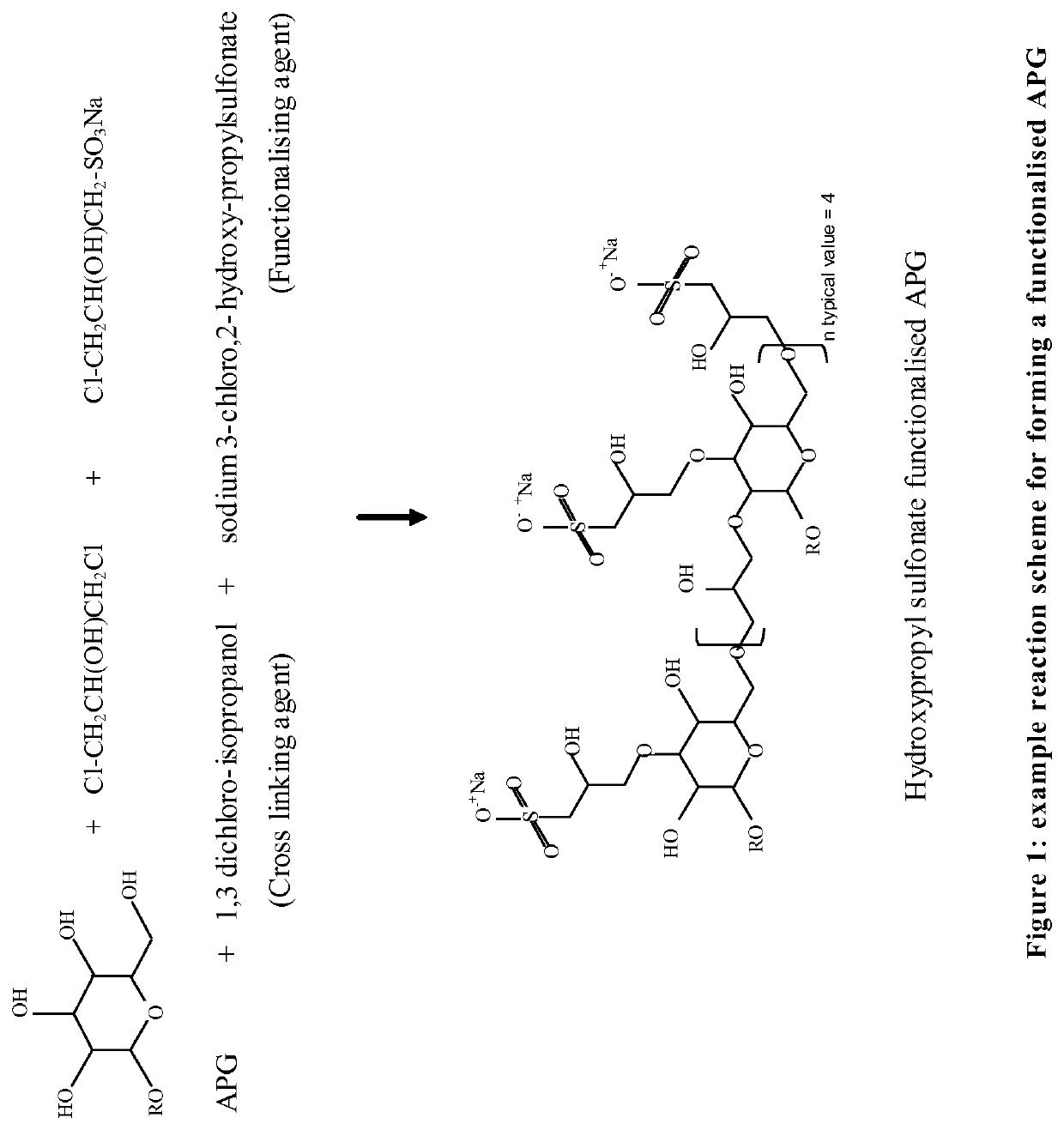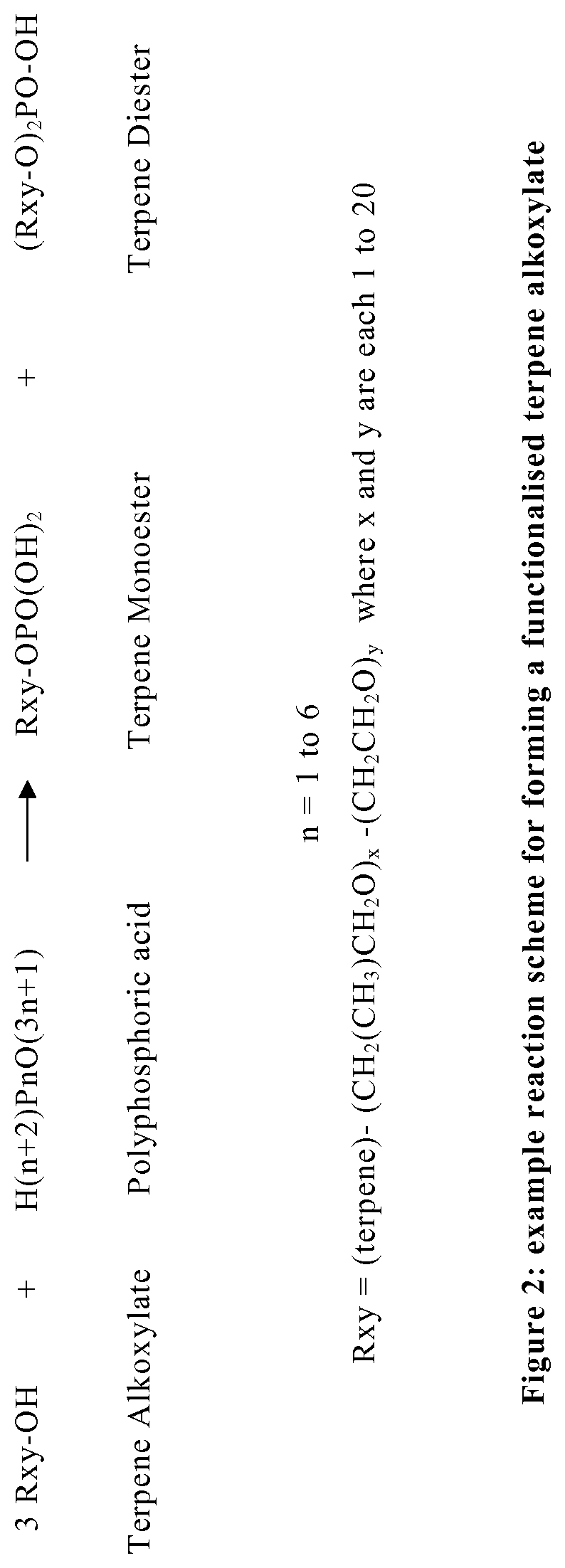Corrosion inhibitors
a technology of corrosion inhibitors and surfactants, which is applied in the direction of detergent compounding agents, borehole/well accessories, treatment water, etc., can solve the problems of poor aquatic toxicity, various conduits and other components in the production zone encounter considerable acidic corrosion, and steel and other metal surfaces can corrode in the presence of aqueous environments
- Summary
- Abstract
- Description
- Claims
- Application Information
AI Technical Summary
Benefits of technology
Problems solved by technology
Method used
Image
Examples
example 1
Linear Polarisation Resistance (LPR) Test
[0192]A modified version of the bubble test was used to compare the corrosion inhibition performance of various corrosion inhibiting surfactants according to the invention with the industry standard corrosion inhibitor, tall oil aminoethyl imidazole, under oilfield conditions.
[0193]The products tested were as set out in Table 1 below:
[0194]
TABLE 1Products testedActiv-ProductChemical nameity %PolySugaNate 100PSodium hydroxypropyl sulfonate Decyl40.5(from Colonialglucose crosspolymerChemicals)PolySugaNate 160PSodium hydroxypropyl sulfonate Lauryl38.6(from Colonialglucose crosspolymerChemicals)PolySugaPhos 1200PPoly sodium Lauryl glucoside hydroxy-40.1(from Colonialpropyl phosphateChemicals)PolySugaBetaine LLauryl Glucoside Betaine crosspolymer40(from ColonialChemicals)PolySugaQuatHydroxypropyltrimonium Coco41.8TM8610P (fromglucosides ChlorideColonial Chemicals)PolySugaQuatStearyldimoniumhydroxypropyl Lauryl30S-1210P (fromglucosides ChlorideColo...
PUM
| Property | Measurement | Unit |
|---|---|---|
| molecular weight | aaaaa | aaaaa |
| molecular weights | aaaaa | aaaaa |
| molecular weight | aaaaa | aaaaa |
Abstract
Description
Claims
Application Information
 Login to View More
Login to View More - R&D
- Intellectual Property
- Life Sciences
- Materials
- Tech Scout
- Unparalleled Data Quality
- Higher Quality Content
- 60% Fewer Hallucinations
Browse by: Latest US Patents, China's latest patents, Technical Efficacy Thesaurus, Application Domain, Technology Topic, Popular Technical Reports.
© 2025 PatSnap. All rights reserved.Legal|Privacy policy|Modern Slavery Act Transparency Statement|Sitemap|About US| Contact US: help@patsnap.com



